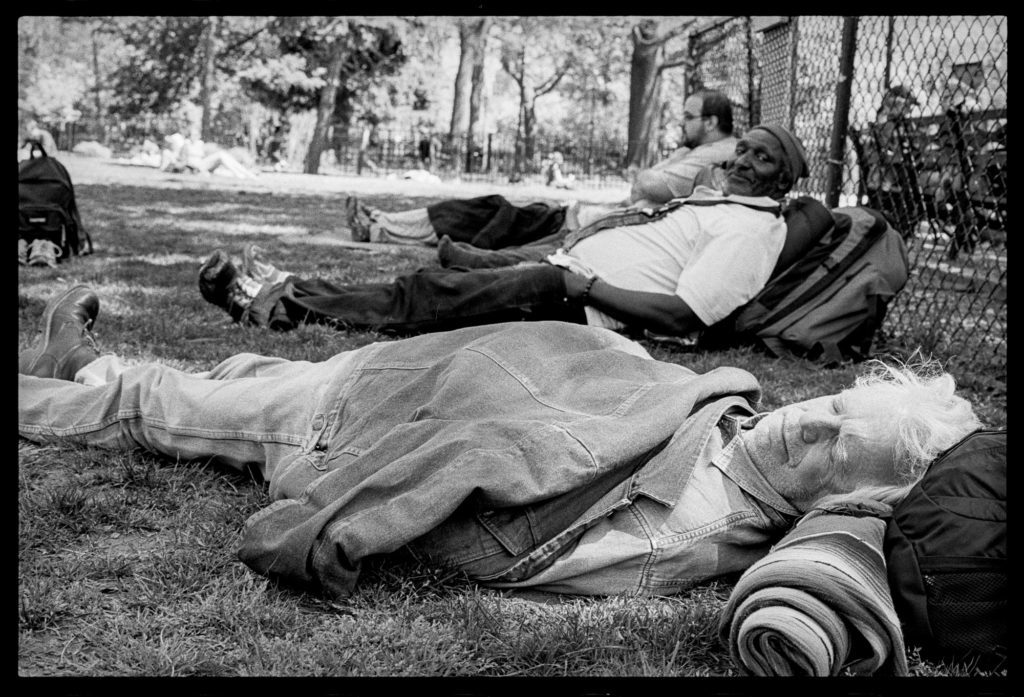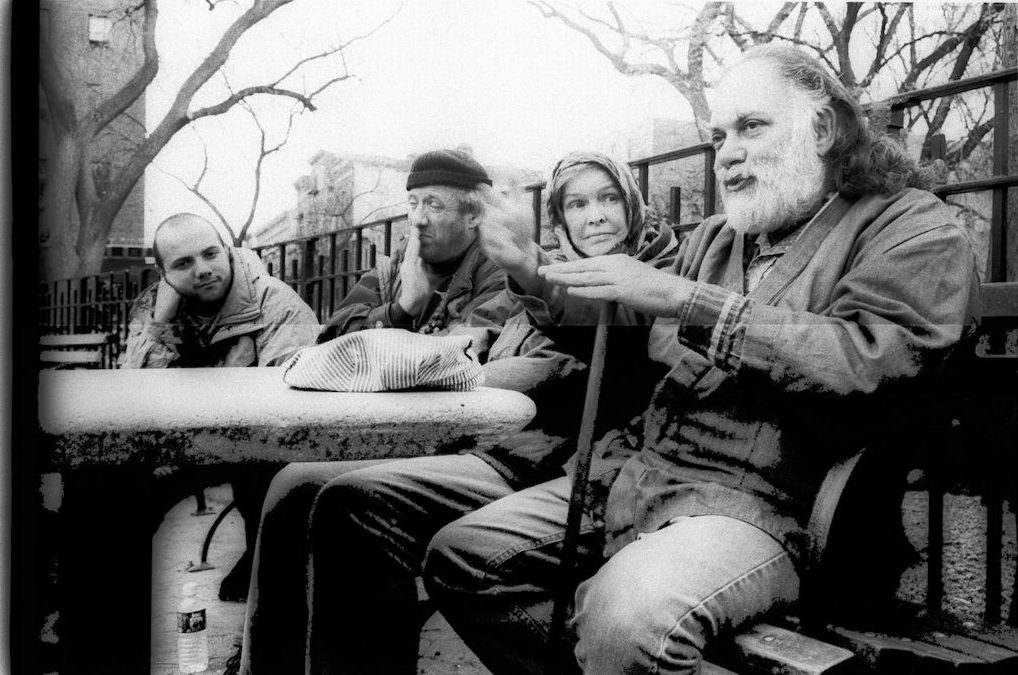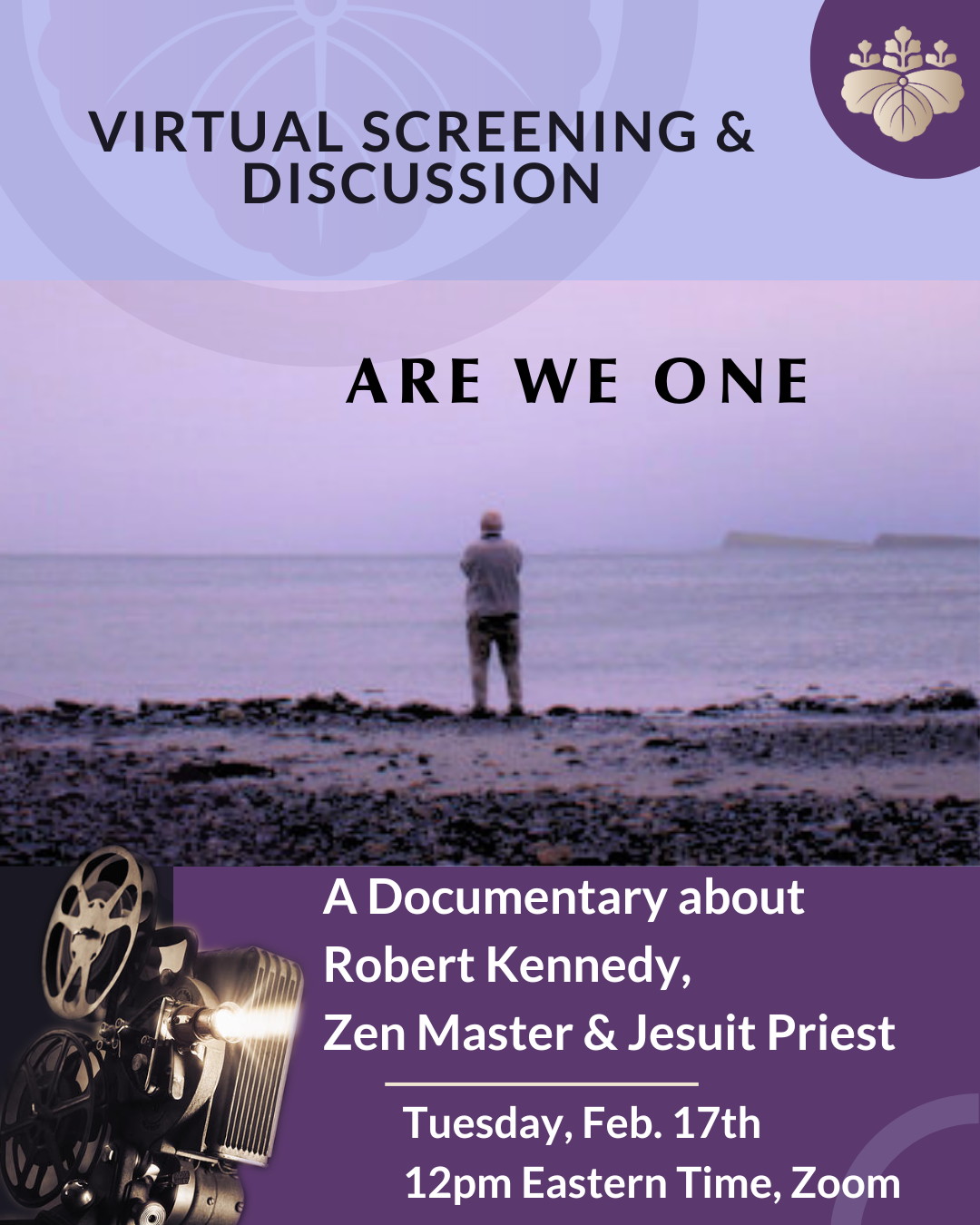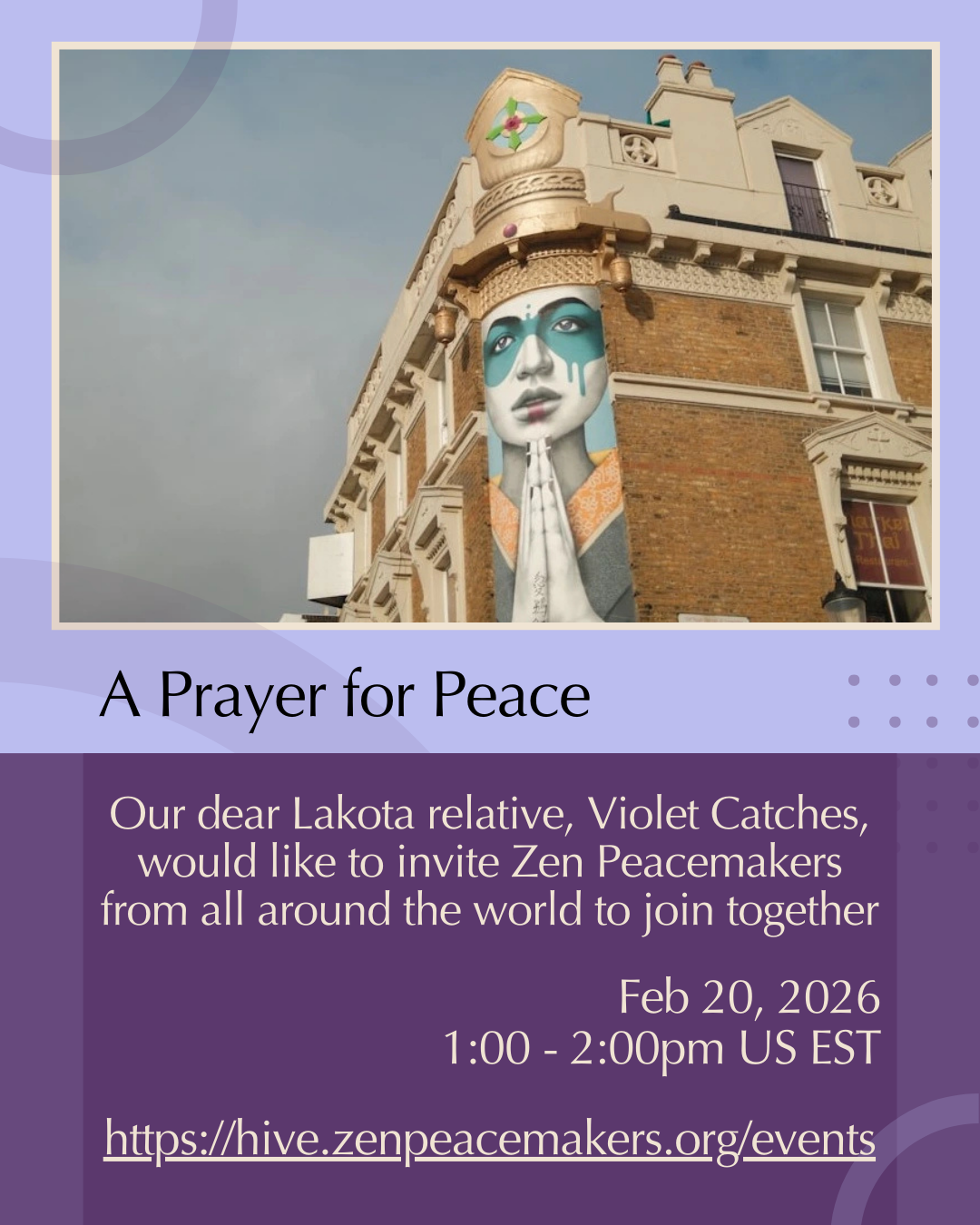Ritiro in strada

- Grover Genro Gauntt - Leader del ritiro di strada
"Quando andiamo... a testimoniare la vita di strada, offriamo noi stessi. Non coperte, non cibo, non vestiti, solo noi stessi".
– da Bearing Witness di Bernie Glassman
In occasione del 55esimo compleanno di Bernie nel gennaio 1994, ha guidato il primo ritiro di strada a Washington DC, contemplando la questione di cosa fare per servire coloro che sono rifiutati dalla società, coloro che sono in povertà e coloro che soffrono di AIDS. Al ritorno a casa, ha discusso con la sua defunta moglie, Sensei Sandra Jishu Holmes, della sua visione di un contenitore per le persone che desiderano impegnarsi in un impegno sociale basato sulla spiritualità. Decisero di sviluppare l’Ordine Zen Peacemaker, un ordine religioso con una forte componente di azione sociale che avrebbe testimoniato per le strade, nei luoghi di atrocità, e avrebbe affrontato i problemi del mondo.

Street Retreat participants spend the week on the street, begging for money, finding food, shelter, and bathrooms. In doing this they are given a powerful opportunity to reflect on themselves and others. By spending this time on the street, participants come closer to the lives of those who live on the streets, reflect on giving and impermanence, and recognize the humanity all people share.
All retreats share some features: participants will be together most of the time, breaking into smaller groups for short periods during the day, always secured by buddies; the full group gathers twice a day for meditation, the Gate of Sweet Nectar liturgy, and sharing circles using the Way of Council; nights are spent together as a group.
From ‘Plunges,’ spring many other practice forms, including the Bearing Witness retreats in Auschwitz-Birkenau, Rwanda, Bosnia-Herzegovina, and the Native American plunges.
Street retreats have been conducted in many cities, from Rio de Janeiro to Jerusalem, from Paris to Piraeus. Sometimes they are coupled with a theme, such as bearing witness to refugees or tracking the path of arms and wars.
– Bernie Glassman ( Intervista del 1999 )
- Do not shave or wash your hair for five days before the retreat. This way the retreat experience begins before leaving home.
- Besides the clothes you are wearing bring only an empty bag (shopping, plastic) or small, not-new day pack for collecting food from shelters. Women may bring one change of underwear and women’s hygiene products. Wear old clothes, as many layers as you feel appropriate for the time of year. Bring or wear a light blanket that will roll up.
- Bring a poncho or some kind of rain gear, preferably something old or makeshift.
- Wear good, but not new, walking shoes. The retreat involves a great deal of walking.
- Bring one piece of photo ID only, your driver’s license or a state ID.
- Do not bring any money, credit cards, illegal drugs, alcohol, weapons, or cellphones.
- Do not wear any jewelry, including earrings and watches.
- Bring no books, conveniences or personal items like toothbrushes.
- Prescription medications are fine.
- Bring a plastic water bottle if you like, or grab one from a trash can.
- Participants will sleep on the streets and avoid shelters in order to preserve beds for those in need.
Registration fees and how they are used vary. Usually, most of the fee is donated to homeless services that supported participants during the retreat, with a portion offered to the retreat’s guiding teacher. Sometimes participants are encouraged or required to raise the money for their registration fee by asking for support from friends, family, and associates, so begging can start right from the beginning. In the Zen Peacemakers tradition this kind of begging is called Mala practice, since the practitioner “wears” the support of everyone who donated to their cause like a mala necklace. When doing a mala you explain to your supporters your reasons for attending a Street Retreat, and are encouraged to report back to them afterwards as a way of returning their gift. Mala practitioners are often surprised at the messages and support they get. You can learn more about Mala Practice here.
I ritiri di strada sono offerti da leader riconosciuti e gruppi affiliati ZPI.
Visita il sito dei nostri membri per un elenco di tutti i prossimi eventi.
Per saperne di più sulla testimonianza dei senzatetto, leggi Rendere testimonianza: le lezioni di un maestro zen su come vivere una vita che conta di Bernie Glassman.


